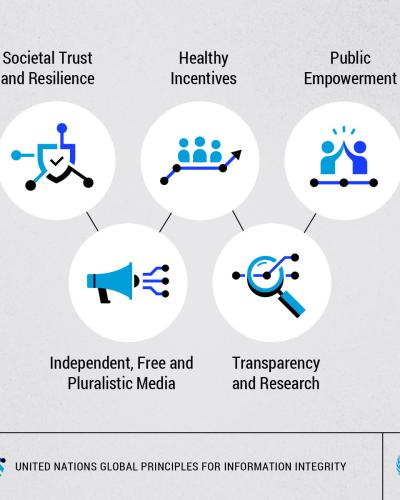United Nations Global Principles For Information Integrity

Technological advances have in a few short decades revolutionized communications, connecting individuals and communities on a previously unthinkable scale and presenting unparalleled opportunities for the diffusion of knowledge, cultural enrichment and sustainable development. They have in many ways raised ambitions for the integrity of the information ecosystem—where freedom of expression is fully enjoyed and where accurate, reliable information, free from discrimination and hate, is available to all in an open, inclusive, safe and secure information environment.
While these advances have enabled the mass dissemination of information, they have also facilitated the spread of misinformation, disinformation and hate speech by many kinds of actors at historically unprecedented volume, velocity and virality, risking the integrity of the information ecosystem. Such risks encompass a range of current, emergent and future threats amid rapid breakthroughs in artificial intelligence technologies.
This erosion of the integrity of information spaces can undermine people’s ability to exercise human rights and can hamper efforts to achieve peace, prosperity and a livable future on our planet. In this way, the task of strengthening information integrity presents one of the most urgent challenges of our time.
Information integrity entails a pluralistic information space that champions human rights, peaceful societies and a sustainable future. It holds within it the promise of a digital age that fosters trust, knowledge and individual choice for all.
Promoting information integrity involves empowering people to exercise their right to seek, receive and impart information and ideas of all kinds and to hold opinions without interference. In an increasingly complex digital information environment, this means enabling individuals to navigate information spaces safely with privacy and freedom.














